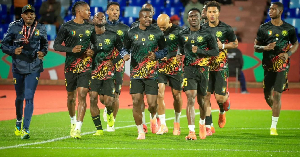Lawyers in the Southwest Region have addressed a memo to President Biya who doubles as Chairman of the Higher Judicial Council, condemning in strong terms, what they say is a systematic relegation of the Common Law system as practice in Anglophone Cameroon.
The memorandum, signed by some 700 lawyers gives a maximum of 30 days for the administration to redress the situation else…! They took the stance during a brainstorming meeting held behind closed doors in a Kumba hotel, Friday, March 13. The lawyers came together under the umbrellas of Fako and Meme Lawyers’ Associations.
In attendance were two newly-elected members of the Bar Council, Nzoh Mbokeh Divine and Justice Ebah Ntoko.
Making allusion to the common law as inherited in this part of the country, they said “The manner in which the refined legal system received from Nigeria and England is being treated of late is a cause for concern and we must not fold our arms and watch.”
Addressing the press after the meeting, spokesman for the lawyers, Barrister Shufai Blaise Sidizem, alongside Barristers Ajong Stanislaus, FAKLA President, Awutah Philip Atubah of MELA, Barrister Sumelong Henry and Pascal Nanje Meloko, stated that, for the simple reason that Cameroon is a bi-jural state, lawyers West of the Mungo should not only be respected by the powers that be in the language of their practice, but be allowed as an inherent right to dispense their services in court in strict Common Law tradition.
They said under no circumstances will they make submissions in French, adding that judges, don’t matter where they come from must deliver in same Common Law tradition.
The lawyers said if they sit still while government continues to infringe on the practice of the English Common law within the North West and Southwest Regions, it will wipe out the practice of the English common law eventually.
They vehemently condemned such injustices in the Anglophone part of the country, arguing that it is a human rights violation to deliver judgment in a language which the plaintiff or defendant does not understand.
It should be noted that this issue first surfaced in North West courts when some judges and magistrates posted to the region from exclusively French speaking regions would not deliver judgments in the English language – the language widely used in the region.
South West lawyers in the memorandum condemned the development, citing a similar case in Buea – case (No. 005/2014/SWAC/DTF/001/2013 of 17 November 2014), on one Leke Theodore against the State of Cameroon in which judgment was passed by a Francophone magistrate in the French language. “The question we are asking is how can a common man who does not understand French come to court for his case and is addressed in French? That is not the kind of justice our system is out to promote,” Barrister Awutah noted.
Among resolutions taken at the meeting, the lawyers state that the Francophone magistrates posted to the English law jurisdiction and who are civil law trained should make sure that they can express themselves and practice within the norms of Common Law.
They also agreed that the practice in Francophone Cameroon civil law where payment for bail and payment of criminal prosecution and the practice of prosecutors sending documents in court in the absence of the prosecution witnesses, not associated to common law be stopped immediately.
The lawyers concluded that “30 days after receiving same, if the answers of the powers that be are not satisfactory, then we would proceed to an undisclosed next action.”
The memo was also copied the Minister of Justice and Keeper of the Seals, Laurent Esso and copies forwarded to some diplomatic missions in the country.
Actualités of Wednesday, 18 March 2015
Source: Cameroon Journal













